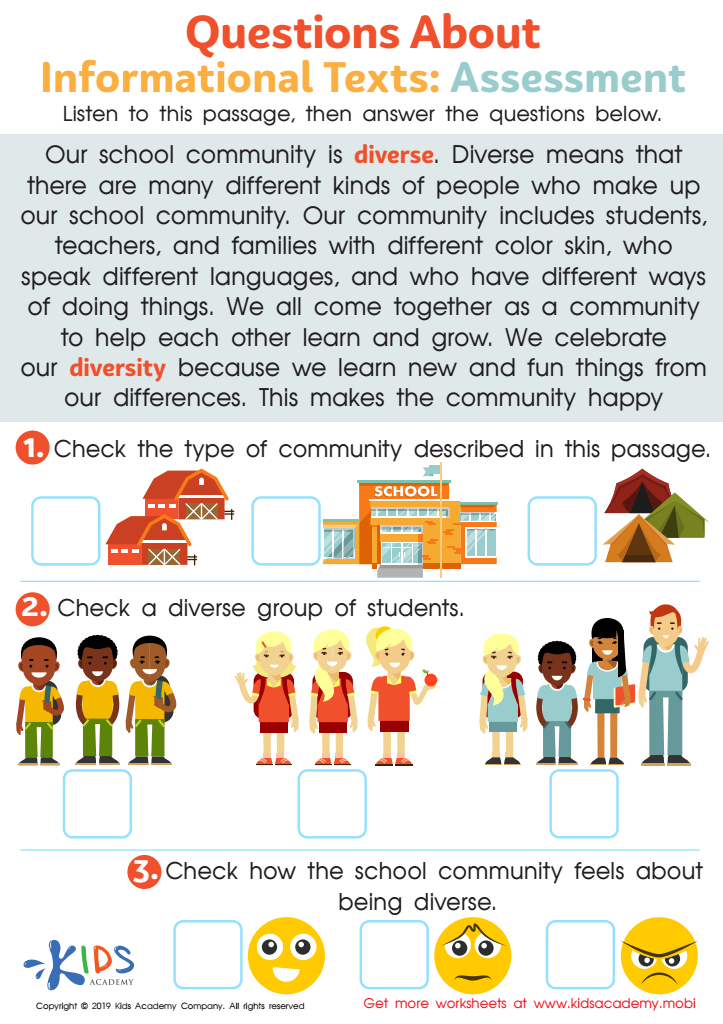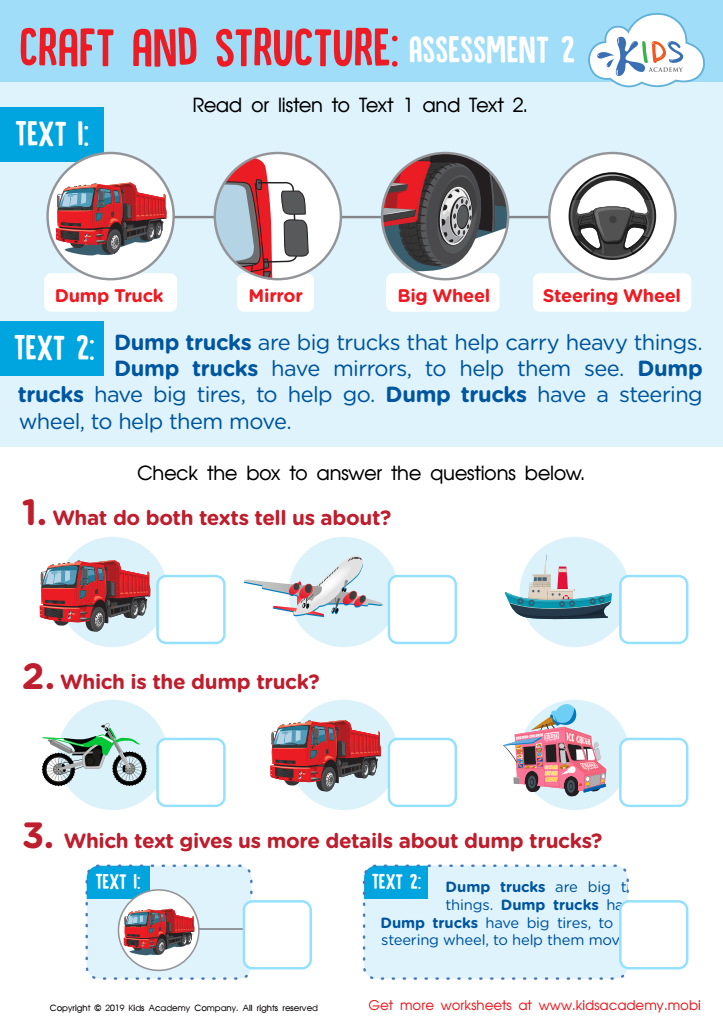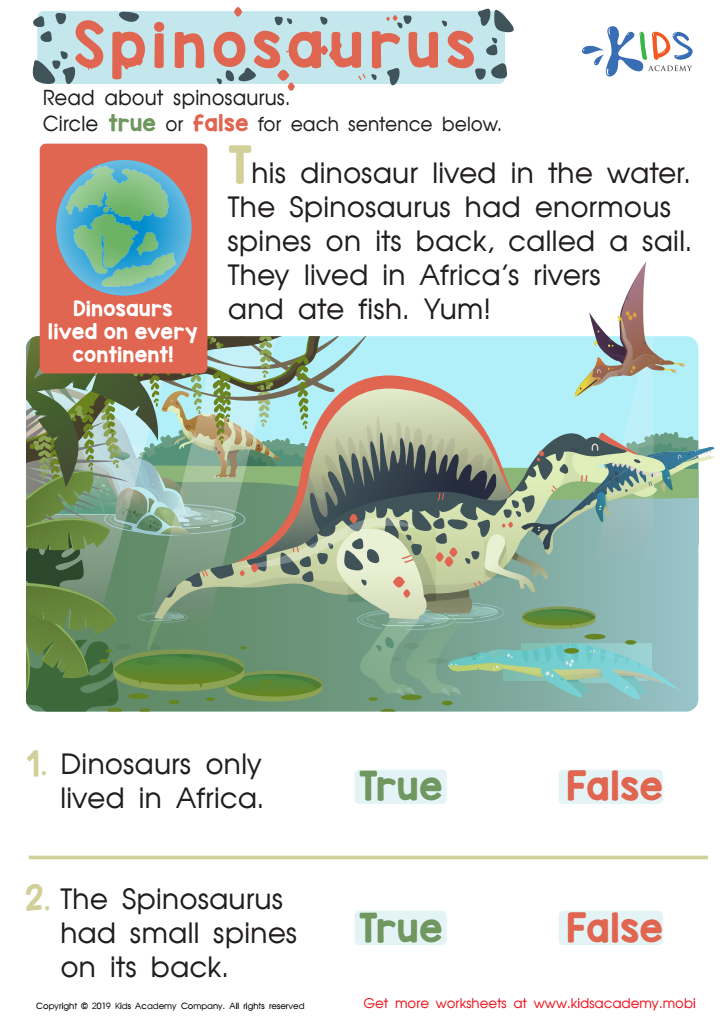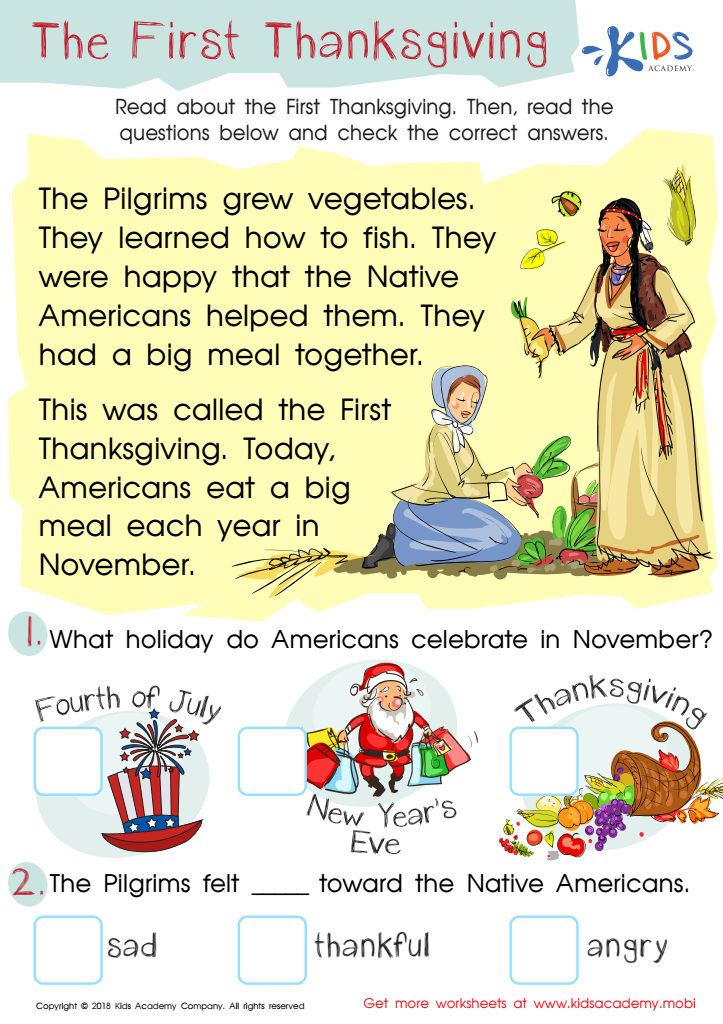Reading Non-Fiction Worksheets Activities With Answers for Ages 6-9
4 filtered results
-
From - To
Enhance your child's learning with our engaging Reading Non-Fiction Worksheets designed for ages 6-9. These activities are perfect for fostering critical thinking and comprehension skills. Your child will explore a variety of non-fiction topics, including animals, nature, and technology, while enjoying fun exercises that include identifying facts, answering questions, and summarizing information. Each worksheet comes with clear answer keys to help you support your child's learning journey effectively. Cultivate a love for informational text and help them make connections to the world around them with our expertly crafted worksheets that make learning both enjoyable and educational!


Questions About Informational Texts: Assessment 1 Worksheet


Craft and Structure: Assessment 2 Worksheet


Spinosaurus Assessment Worksheet


Assessment: First Thanksgiving Worksheet
Parents and teachers should recognize the importance of reading non-fiction activities for children aged 6-9 as these materials significantly contribute to a child's cognitive development and comprehension skills. At this age, children are naturally curious about the world around them. Engaging with non-fiction exposes them to real-world concepts, facts, and ideas, enhancing their understanding of various subjects, from science to history.
Through structured activities with answers, children not only find reading more interactive but also develop critical thinking skills. These activities encourage children to explore questions, make connections, and seek out information, rather than passively absorbing content. Moreover, discussions surrounding non-fiction topics facilitate richer conversations, enhancing vocabulary and language skills.
Furthermore, non-fiction reading fosters a sense of empowerment as children learn about diverse topics, leading to informed perspectives on their environment. It prepares them for academic success by establishing foundational skills necessary for future learning. Thus, by prioritizing reading non-fiction activities, parents and teachers create a pathway for lifelong learning, critical understanding, and an appreciation for factual knowledge, all essential components for a child's educational journey.
 Assign to My Students
Assign to My Students






.jpg)














